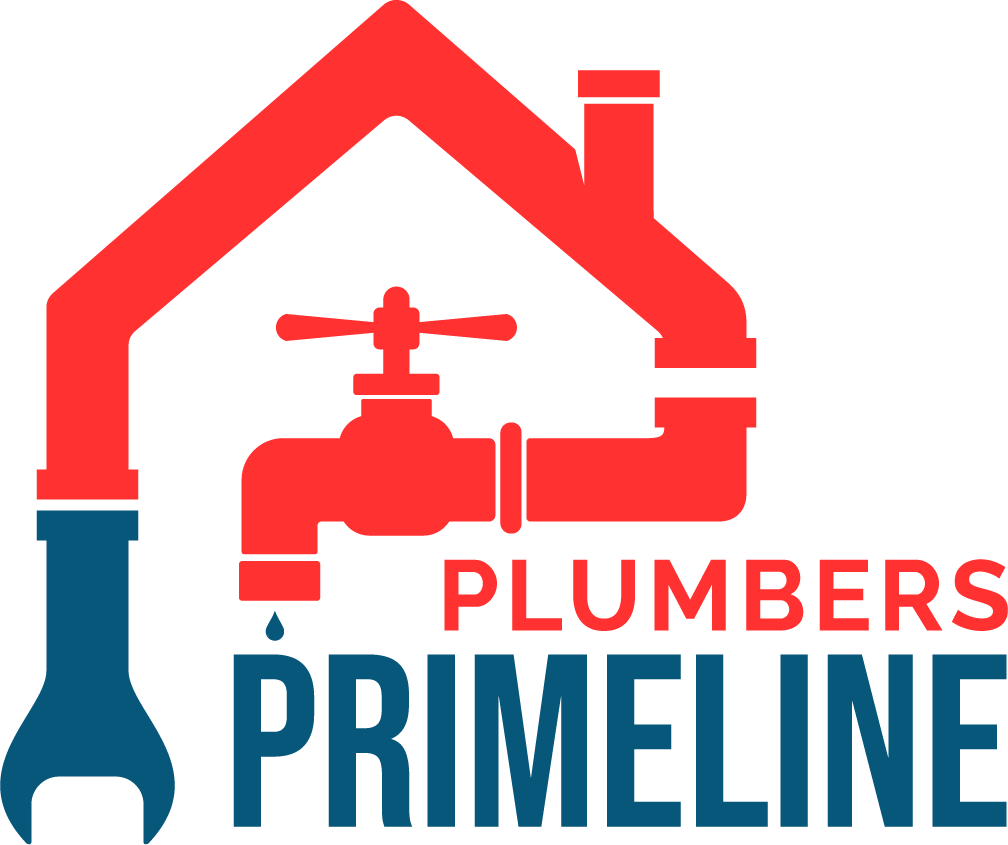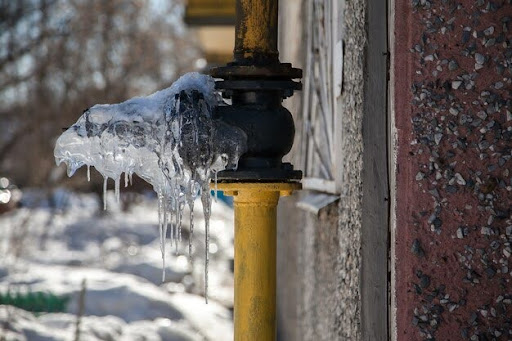Winter weather brings its own set of challenges. From managing water heater problems to frozen pipes there are many concerns that winter brings for homeowners. Whether you’re bracing for a cold front or just trying to understand how quickly pipes can freeze, it’s important to know the factors involved and how to protect your home.
In this article, we’ll answer questions like “how long does it take for pipes to freeze?” and provide tips for prevention.
What Temperature Do Pipes Freeze?
Water begins to freeze at 32°F (0°C), but that doesn’t mean your pipes will instantly freeze when temperatures drop to this level. For pipes to freeze, external conditions must sustain freezing temperatures long enough for the water inside to reach 32°F. Generally, exposed pipes in uninsulated areas are at greater risk.
How Long Does It Take for Pipes to Freeze?
The time it takes for pipes to freeze depends on several factors, such as:
Temperature
The colder it gets, the faster your pipes will freeze.
- At 20°F (-6°C) or below, it can take just 4-6 hours for exposed pipes to freeze if they are unprotected and in unheated areas.
Insulation
Well-insulated pipes take longer to freeze compared to exposed pipes in unheated spaces like basements, garages, or crawl spaces.
Pipe Material
Metal pipes e.g., copper or steel, freeze faster than plastic pipes because metal conducts cold more effectively.
Water Flow
If water is moving through the pipes, it takes much longer for them to freeze. Still, water freezes faster.
In typical freezing conditions, how quickly pipes freeze can range from a few hours to overnight. If the outside temperature is around 20°F and pipes are uninsulated, freezing may occur within a single night.
How Long Does It Take for Water to Freeze Inside Pipes?
When asking, how long does it take for water to freeze, the answer depends on the environment around the pipes:
- Outdoor Pipes
Pipes exposed to sub-freezing temperatures with no insulation can freeze in as little as 6 hours.
- Indoor Pipes
Unheated indoor spaces like basements and attics may take longer, but the process accelerates as temperatures drop further below freezing.
When Would Pipes Freeze?
Pipes are most likely to freeze during:
- Extended Cold Spells
Prolonged exposure to sub-freezing temperatures gives the water inside pipes enough time to freeze completely.
- Overnight Drops
Many pipes freeze during the night when temperatures are at their lowest.
- Power Outages
During a power outage in freezing weather, indoor pipes can freeze quickly due to a lack of heating.
How Fast Do Pipes Freeze?
Understanding how quickly do pipes freeze can help you take the necessary precautions. Here’s a breakdown of potential freezing times:
- 20°F (-6°C)
Pipes can freeze in 4-6 hours, especially if they’re exposed and water isn’t flowing.
- 15°F (-9°C) or Below
Pipes can freeze in as little as 2 hours under severe conditions.
- Sustained Freezing Temperatures
If the temperature remains below freezing for 24 hours, even partially insulated pipes are at risk.
Factors Influencing How Quickly Pipes Freeze
Several factors impact the freezing time for pipes, including:
- Pipe Location
Pipes located in unheated areas like crawl spaces or attics freeze faster than those inside heated homes.
- Wind Chill
High winds can accelerate freezing by cooling exposed pipes more rapidly.
- Pipe Diameter
Smaller pipes freeze faster than larger ones because there’s less water to cool down.
- Water Flow
Letting water drip from a faucet can prevent freezing, as moving water is harder to freeze.
How to Prevent Frozen Pipes
In the case of frozen pipes, it is better to get help from professionals like Primeline Plumbing. But in case you want DIY solutions then these are some preventive measures that you can follow.
- Insulate Pipes
Use pipe insulation or heat tape for exposed pipes, particularly in unheated areas.
- Seal Cracks and Openings
Seal gaps around windows, doors, and walls to keep cold air out and warm air in.
- Keep Faucets Dripping
Allowing a slow drip from faucets helps prevent freezing by keeping water moving.
- Open Cabinet Doors
Leave cabinet doors open under sinks to allow warm air to circulate around pipes.
- Maintain Indoor Heat
Keep your thermostat set to at least 55°F (13°C), even when you’re away from home.
- Disconnect Hoses
Disconnect outdoor hoses and shut off exterior water lines to prevent freezing in outdoor faucets.
What Happens When Pipes Freeze?
When water freezes, it expands. This can cause pipes to crack or burst, leading to costly water damage and repairs. If you suspect your pipes have frozen, act quickly and have pipe repair services to minimize damage. You can:
- Turn Off the Water
Shut off the main water supply to prevent flooding if a pipe bursts.
- Thaw Pipes Safely
Use a hairdryer or heat lamp to thaw frozen pipes gradually. Avoid using an open flame or blowtorch, as these can damage the pipe or cause a fire.
- Call a Professional
It is better to contact local plumbers in your area say Co-op City or Gowanus, if you are unable to safely thaw the frozen pipe. They will have the expertise to carefully unfroze your pipe preventing any sort of damage.
Conclusion
The question of how long for pipes to freeze doesn’t have a one-size-fits-all answer. Factors like temperature, insulation, and water flow all play a role in determining freezing time. In general, exposed, uninsulated pipes can freeze in as little as 4-6 hours when temperatures drop to 20°F or lower.
Understanding how long does it take for pipes to freeze helps you stay proactive. Don’t wait until a deep freeze, prepare your home now to keep your water flowing and your pipes safe.
FAQs
Can copper pipes freeze without bursting?
Yes, copper pipes can freeze without bursting, but prolonged freezing increases the risk of expansion and potential pipe damage.
How long does it take something to freeze?
Freezing time varies; water freezes at 32°F for about 1-2 hours in standard conditions, depending on volume.
At what temperature do pipes in a house freeze?
Pipes in a house typically freeze when temperatures drop to 20°F or lower, especially without proper insulation or heating.
Does PVC pipe freeze?
Yes, PVC pipes can freeze when temperatures drop below 32°F, and prolonged freezing increases the risk of cracking or bursting.
Can plastic water pipes freeze and burst?
Yes, plastic water pipes can freeze and burst as expanding ice increases internal pressure, especially in uninsulated or exposed areas.



Comments are closed